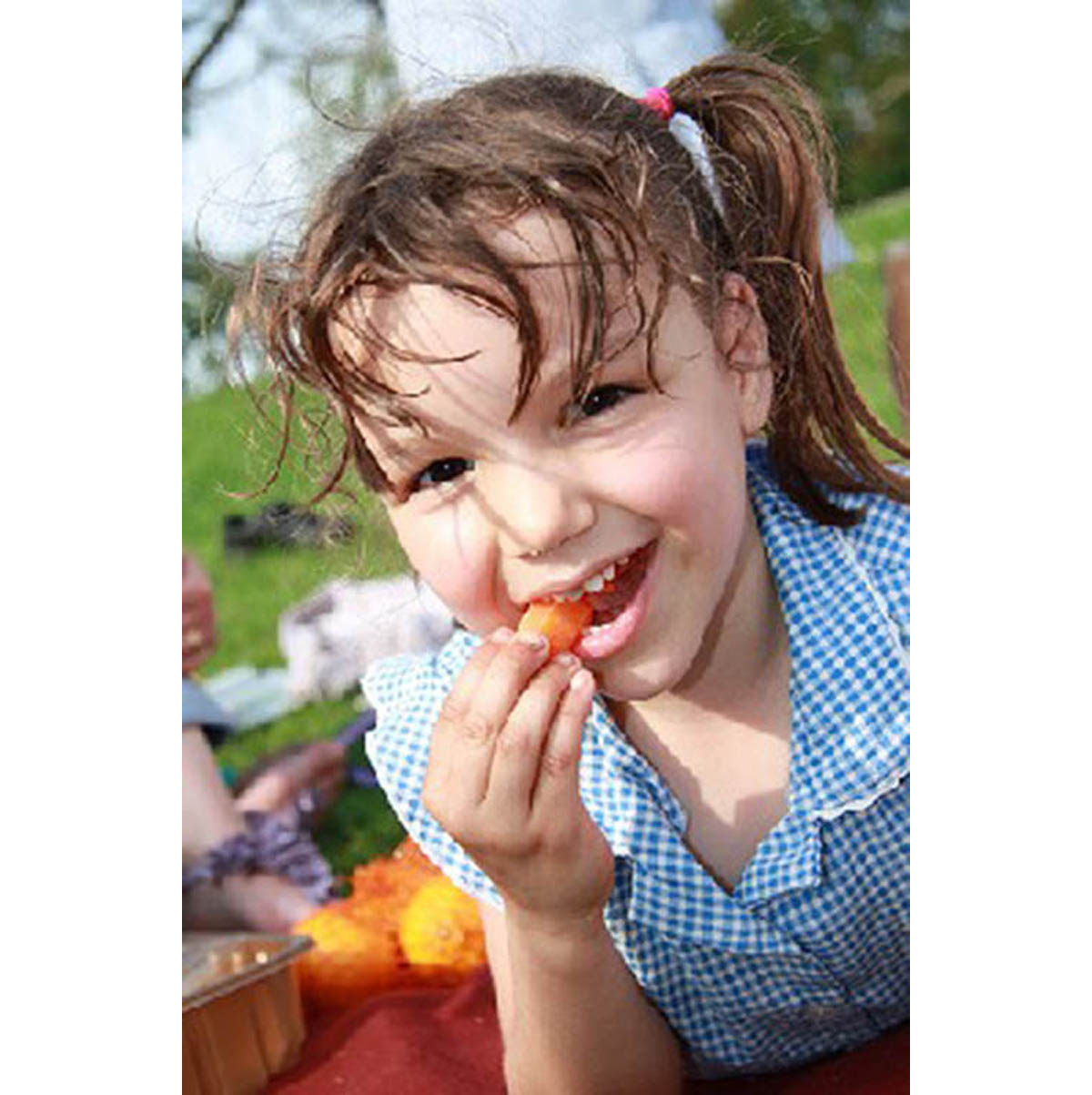 Parents Who Smile When They Eat Raise Children Who Make Less of a Fuss About Eating
Parents Who Smile When They Eat Raise Children Who Make Less of a Fuss About Eating

Have you ever played the game "aeroplane" while feeding your toddler? For those who may not be familiar with how it goes, the parent, in American culture it's usually the father, tries to coax the child into eating by placing the questionable food on a spoon. Then the doting parent makes airplane noises while circling the child with the spoon until "landing" it in the child's mouth.
This technique works up to about the age of 2. But what can parents do to motivate picky eaters aged 5 to 8? The latest research, coming from France, suggests that it might be better just for parents to smile when they eat their own servings of liver and broccoli.
French researchers asked 120 children and adults to look at photographs of people eating food. For adults, reactions were straightforward. If the person in the photograph was obese, adults didn't want to eat the food. If the person in the photo was thin, then eating the food was OK.
Children's reactions to photos of people eating food were more complex. Children did not care whether the person in the photograph was obese or thin if food in the photo was something they liked to eat, such as chocolate.
When the food in the photo was something they did not like to eat, such as snails (even in France, children have mixed reactions to eating snails), then showing an obese person in the photo made their ratings go down even more.
Children's Food Preferences Are Shaped By the Emotions of Others
Researchers at the French National Institute for Agricultural Research, where the study was conducted, were surprised by the results.
Children, it appears, rely on the emotions of people around them to make food choices. In this study, any photo of an eater looking disgusted made a child less likely to eat the food. Any photo of a person looking happy while eating the food made the child more likely to eat the food, and a thin eater with a pleasing expression increased the desirability of the food even more.
Even in France, which is not an especially weight-conscious country, children were aware of the stereotypes surrounding obesity, but they were not as concerned about them as adults.
So what can parents take from this study and similar recent research?
- Facial expressions about food are automatic in children, but they are not necessarily automatic in adults. Disguising your feelings about a food may help make it more acceptable to a child.
- The reaction of a child to food mirrors the reaction of his or her parents. If you cannot serve foods everybody likes, at least don't express revulsion to them in front of your child.
- People eat more when they are with friends than when they are with strangers. Expect children to be fussier about eating in restaurants.
- Obese children eat more when they are with other obese children. If you want to help your child eat less, plan activities that do not involve food when other obese children are around.
READ Keeping Food's Nutritional Value: Tips for Preserving Vitamins When Cooking Vegetables
An important question is, if you really don't like the food yourself, why do you expect your child to eat it? If there is a budget issue, or a health issue, explaining the reasons you serve the food you serve may not make it tastier, but it may increase your child's appreciation of you as a parent.
- Barthomeuf LR, Droit-Volet SM, Rousset SM. Differences in the Desire to Eat in Children and Adults in the Presence of an Obese Eater. Obesity (Silver Spring). 2011 Mar 3. [Epub ahead of print]

